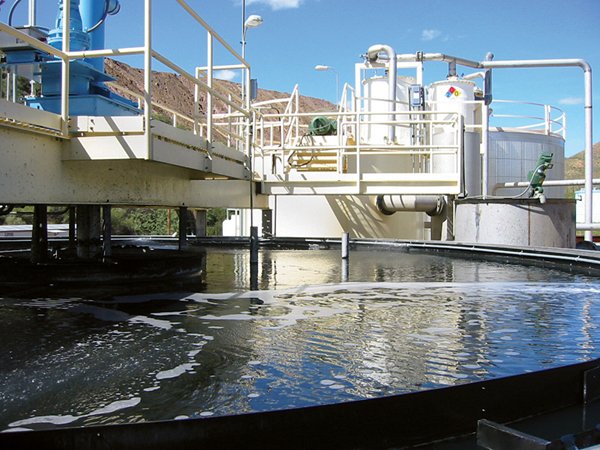BioTeQ Suspends Bisbee Project
Announces Furlough After Years of Losses

BioteQ Environmental Technologies Inc.: Bisbee Plant Furlough
VANCOUVER, BRITISH COLUMBIA–(Marketwired – Nov. 8, 2013) – BioteQ Environmental Technologies, Inc. (TSX:BQE), a leader in industrial wastewater treatment, announces that the copper recovery facility in Bisbee, Arizona has been placed on furlough. BioteQ and its joint venture partner, Freeport-McMoRan Copper & Gold, have further agreed that the plant shall not restart under the existing operating arrangement.

In September 2013 BioteQ announced that operations at the Bisbee plant had been suspended. Unusually high levels of rainfall in the area during July and August had necessitated the plant being placed in idle mode. In mid-August while the plant was in idle mode, it encountered operational and process issues that led to a gas release event.
BioteQ subsequently conducted an investigation into the root causes of this release. The investigation revealed that a partial blockage in a pipe at the plant and the concurrent failure for a short duration, of a seal mechanism led to gas being released.
BioteQ has evaluated the merits of making required changes to the plant and restarting operations. Relevant matters to making a decision include:
— The volume of solution being treated by the plant and the amount of copper being recovered has been declining since 2008. This decline in solution being processed plus a concurrent decline in copper grade has resulted in poor financial returns from the facility.
— In the five fiscal years between 2009 and 2013, the Bisbee facility has generated positive cash flow on an annual basis only once:
(BioteQ 50% share) 2009 2010 2011 2012 2013 YTD ------------------- -------- -------- --------- ------- -------- Net Operating Cashflow $(45,000) $(36,000) $(152,000) $96,000 $(76,712) ------------------- ------- ------- -------- ------ ------- — If the plant were to continue to operate, it is highly likely that over the next 12 to 24 months the volume of solution being fed to the plant would continue to decline. Even if the volume of solution were to remain constant, the plant would continue to struggle to achieve a cash positive position.
— If the plant were to continue to operate, it is highly likely that over the next 12 to 24 months the volume of solution being fed to the plant would continue to decline. Even if the volume of solution were to remain constant, the plant would continue to struggle to achieve a cash positive position.
Given that the plant would not generate positive cash flow if the plant were in operation over the next 24 months, BioteQ has decided to furlough the Bisbee plant for an indefinite period.
The parties plan to monitor ongoing developments at the site. The plant will remain in furlough until a decision is made regarding the future of the plant.
With the plant not generating positive cash flow, the decision to furlough the plant will not impact BioteQ’s adjusted EBITDA results in 2014 and beyond but will impact the revenues generated by the company. The shutdown and furlough of the Bisbee facility will however, have a material impact on 2013 results. BioteQ estimates this impact to be:
A reduction in forecasted proportional revenue figure of approximately $400,000 for the year, and; An increase in adjusted EBITDA loss forecast for the year of approximately $300,000 as a result of costs associated with labour at site during the plant shutdown and during the root cause investigation.
In addition, BioteQ will need to recognize an impairment charge for the carrying value of BioteQ’s investment in the Bisbee joint venture for the full value of $1.4 million. This figure will be reflected in our Q3 net income and in adjusted EBITDA results.
Jonathan Wilkinson, BioteQ’s Chief Executive Officer stated, “The decision to furlough the Bisbee plant was a difficult one given that it has operated successfully from a technical perspective for almost 10 years. However, because financial results generated by the plant in the past five years have been poor and because we know these results will not improve in the near future, the decision to furlough the operation at this time is in the best interests of both joint venture partners.”
bisbee.net
bisbee.net
WordPress AMP Plugin
09.05.2025 - 05:50:57